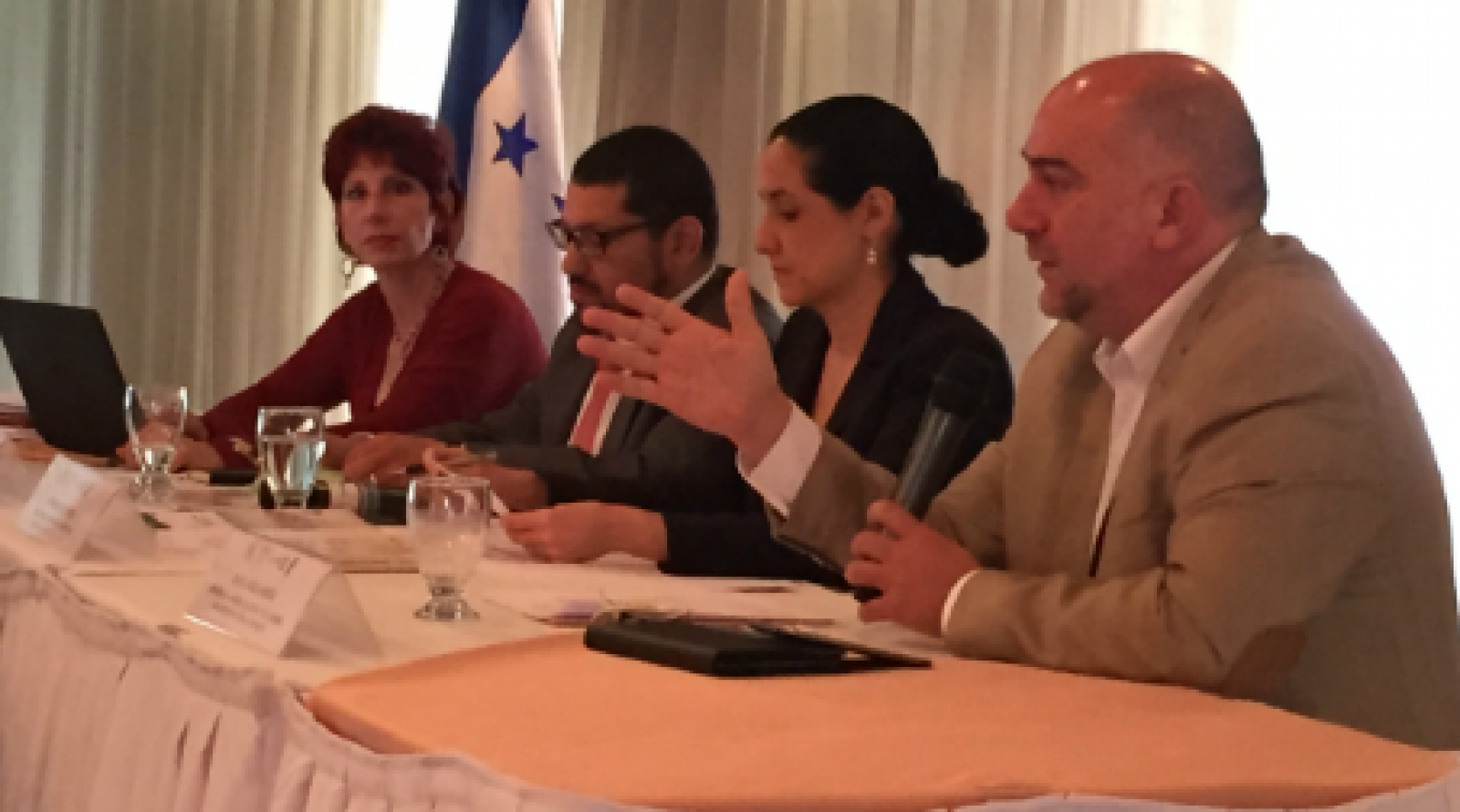
SHARE
In Honduras, a series of recent protests have taken place as citizens call attention to corruption and impunity. In response to the latest corruption scandal involving the embezzlement of $120 million from the Honduras Social Security Institute (IHSS), a growing movement led by young people using social networks has organized mass “torchlight marches” (Marcha de las Antorchas) in major cities across the country.
Unrest has been noticeable in Honduras for years, particularly after a 2009 constitutional crisis culminated in a coup that removed President Manuel Zelaya from office. Although two subsequent presidential elections in 2009 and 2013 have helped turn a page on the institutional crisis and have eased the most strident conflicts, the 2013 elections highlighted the need for electoral reforms to instill greater transparency in the electoral process and the management of state agencies, and to raise voter confidence.
Against this background, NDI brought together more than 160 representatives from congress, electoral authorities, political parties, civil society organizations, academia, the international community and the media for a forum to discuss electoral reforms on June 17 and 18 in the capital city of Tegucigalpa.
Amid the public demands for increased transparency and accountability, Honduran President Juan Orlando Hernández announced at the end of June that he would soon send to Congress two proposals for electoral reforms. The proposals would depoliticize election polling centers by changing those responsible for conducting voting at individual polling stations from members of political parties to members of civil society organizations, and put in place better rules to regulate campaign finances. The reform package follows through on the key issues Honduran civil society organizations have been calling for since the 2012-2013 campaign season.
“The formation of polling stations, delivery of credentials and the financing of political campaigns are part of the electoral reforms packet that need to be reviewed,” said Marco Ramiro Lobo, deputy magistrate of the Supreme Electoral Tribunal (TSE), Honduras’ election commission. “We believe that the issue of political campaign finance must be analyzed because under the current electoral law it is very difficult for [the TSE] to monitor spending or funding to political campaigns. The law currently only requires the parties to provide a financial report, but does not give the Tribunal time to review before it is published,” said Lobo.
Participants at the forum analyzed the context of the Honduran electoral system, the dynamics of electoral reforms in Latin America, when and how to amend the electoral geography, case studies of promoting greater political participation and representation, analysis of political party financing regulations, and the role of political parties, civic organizations and international cooperation in supporting electoral reform.
Presenters included 18 academic, technical and political specialists from Mexico, Peru, El Salvador, Haiti, Nicaragua, Costa Rica and Honduras. Leaders of the Honduran National Congress commissions on electoral issues and gender equality, electoral magistrates, representatives of all seven registered political parties and youth organizers of the civil marches attended the public forum.
“Without real electoral reforms, we will soon have more difficulties in future electoral processes. If there is no credibility, if there is no unanimous support of the results, we will possibly experience greater social unrest, which is the least of what anyone wants,” said Congressman Jose Alfredo Saavedra, president of the Electoral Affairs Commission of the National Congress.
The director of the Civil Society Group (GSC), Jessica Sanchez, also spoke about the urgency of reforms, highlighting the need to open the door to a more inclusive and diverse democracy, one that engages underrepresented or marginalized groups such as women, indigenous peoples, youth and the LGBTI population, who had no role in the construction of Honduran democracy.
Following the seminar, political and civic leaders alike have called for specific electoral reforms aimed at more transparent political campaign finances and strengthening the TSE’s process for selection, training and accrediting polling station staff.
The seminar was sponsored by NDI in collaboration with the International Institute for Democracy and Electoral Assistance (International IDEA), the Netherlands Institute for Multiparty Democracy (NIMD) and the United Nations Development Programme (UNDP), and built upon similar joint efforts initiated in 2012.
Published on July 24, 2015


